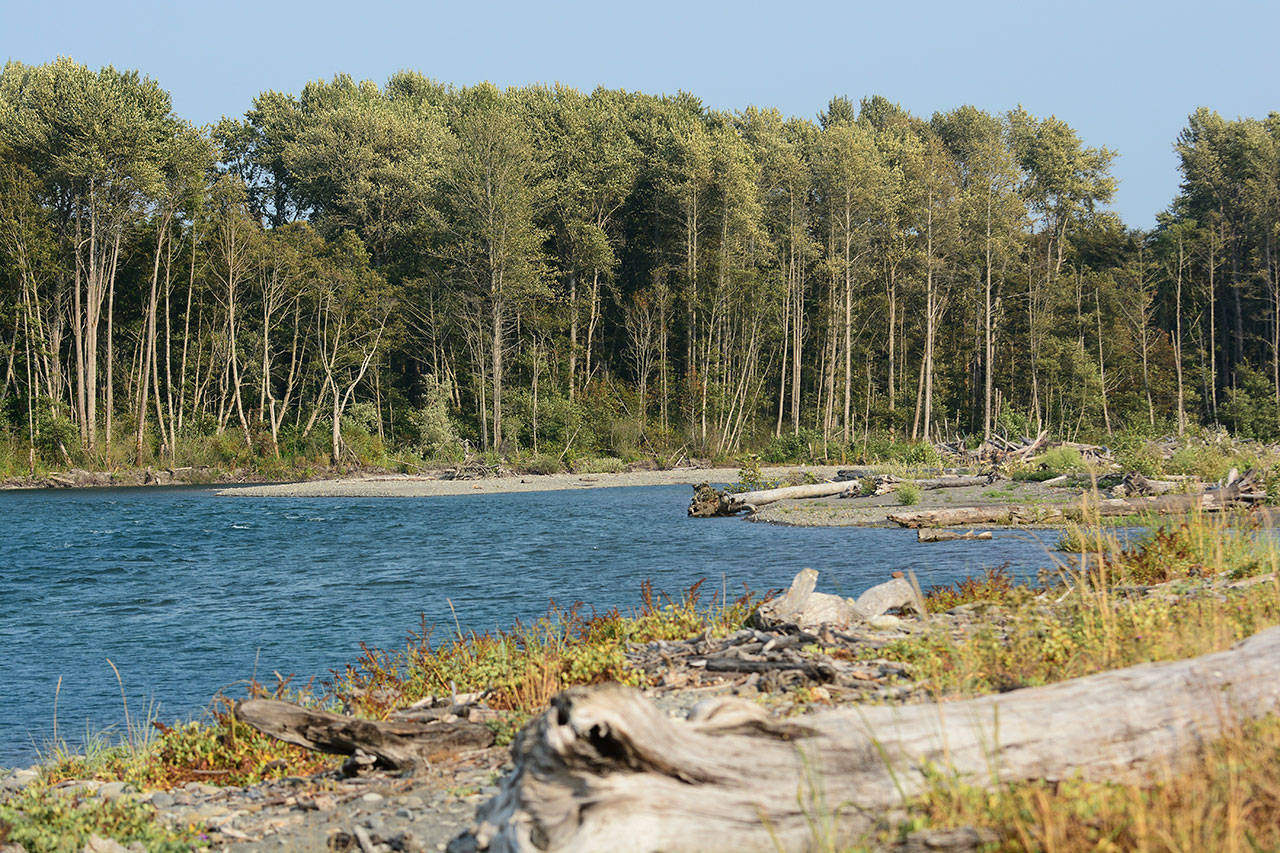PORT ANGELES — The Coastal Watershed Institute’s project expanding accessibility to the Elwha River mouth and restoring a section east of the mouth is at a halt after the nonprofit has struggled to find funding.
The nonprofit’s executive director, Anne Shaffer, said she doesn’t understand why funding through the Puget Sound Partnership for the project was denied this year when the project was the set as the top priority for habitat restoration projects in the state.
Projects much lower on the list were funded instead, she said.
“Nobody has been able to look at us with a straight face,” she said. “The impression the list gives is it was nothing but an exercise by state agencies to fund state agencies.”
Cathy Cochrane, spokeswoman for PSP, said that though the Coastal Watershed Institute’s project was set as the top priority for habitat restoration in the state, a change in the Environmental Protection Agency funding model changed how funding decisions were made.
She said the funding change took the decision-making out of PSP’s hands and that it is now the strategic initiative leads who make the decisions.
The habitat restoration strategic initiative lead team is composed of two policy co-leads and two technical co-leads from the state Department of Fish and Wildlife and the state Department of Natural Resources.
The leads facilitate advisory teams made up of technical and policy experts in the region, PSP, EPA, tribes and others.
“The change in the funding model took it out of our shop and put it into the strategic initiative leads’,” Cochrane said. “We coordinate with them, but we don’t direct.”
Efforts to reach Kirsten Feifel, policy co-lead for DNR, were unsuccessful.
The lack of funding from PSP in its past two grant cycles has left the project about half complete and just over half funded.
In February 2016, the Coastal Watershed Institute and state Department of Ecology received a $1 million grant from the U.S. Fish and Wildlife Service for the Beach Lake Acquisition and Restoration project.
Additional funding came from the state Salmon Recovery Funding Board and PSP, which listed the project as its top priority in a recent ranking.
Crews removed derelict armor east of the Elwha River mouth last year and saw a half-mile section of eroded beach east of the Elwha Tribal Center transform.
Shaffer said the project now needs just $700,000 more to remove structures and remaining riprap from the site, to revegetate an old cow pasture, to provide parking and to install interpretive signs, among other final tasks.
Michael Peters, CEO of the Lower Elwha Klallam Tribe, said the tribe is supportive of the efforts to remove armoring and the restoration of the shoreline.
“We have an interest in openly managing that property in the long term,” he said. “Our involvement is directly related to their cleanup efforts, and their cleanup is directly related to funding.”
Shaffer said she is now looking for other funding opportunities but isn’t aware of any other grants for this type of project.
“The sad part is the Elwha project, the beach site project, it’s at this point where we’ve just stopped because we can’t finish the project without funding,” she said. “We’re literally halfway done.”
She said the grant process for these sorts of projects is highly competitive and funding is becoming more scarce.
“Our growing concern is if this is our success after being the No. 1 project … there’s no guarantee,” she said. “The project is just on hold indefinitely until we can get it completed.”
Shaffer said there is currently no truly public access to the Elwha River mouth. A trail that takes visitors out to the beach sits on private property, she said.
“The only public access to the Elwha shoreline is on the west, and that is provided graciously by private landowners and the Lower Elwha Tribe,” she said. “That access is owned by landowners and the tribe. That’s not a public access site.”
________
Reporter Jesse Major can be reached at 360-452-2345, ext. 56250, or at jmajor@peninsuladailynews.com.

